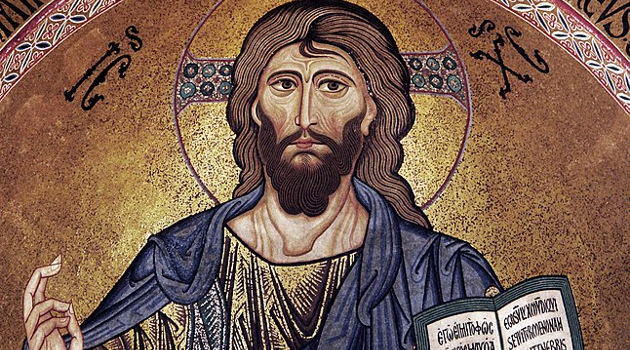As part of my collection of pro-and-con libertarian humor, I’ve shared some images of “Libertarian Jesus.”
- Libertarian Jesus I
- Libertarian Jesus II (though I suppose this is actually an example of anti-Libertarian Jesus)
- Libertarian Jesus III
There’s another perspective, of course. Many mainline protestant denominations have very statist political agendas, and there’s a “liberation theology” strain of Catholicism.
Some of these people even might argue that Jesus was a socialist. Back in 2009, I shared some excerpts from a skeptical column by Cal Thomas on this topic. Today, let’s take a deeper look.
In a video for Prager University, Larry Reed looks at the Bible to determine whether Jesus was a socialist.
I’m certainly not an expert on theology, but I definitely liked Larry’s point about the warning against envy in the 10 Commandments.
After all, “Thou shall not covet” certainly seems inconsistent with class-warfare policy.
Let’s see what others have written on this topic.
In her Wall Street Journal column, Mary Anastasia O’Grady explains that socialism, with its emphasis on the collective, is inconsistent with Catholic religious teaching.
Socialists pose as humanitarians and sometimes even as Christians but their system strangles the person, who is at the heart of Catholic teaching. Catholic University of America research fellow Father John McNerney, author of “Wealth of Persons” (2016), describes the “real wellspring” of human progress as emanating from “the unique, irreplaceable and unrepeatable . . . reality of the individual acting in relation to his neighbor.”
…Economists understand that the profit motive is integral to entrepreneurship. But it is about much more than material gains. Father McNerney illustrates the point in his book with the story of Agnes Morrogh-Bernard, a Sister of Charity who worked in the west of Ireland in the aftermath of that country’s notorious 19th-century famine. Starvation had wiped out whole communities, when not physically, spiritually. …Sister Agnes recognized that “mere philanthropic handouts could not recover” the annihilated Irish spirit. The community needed a creative outlet; it needed work. …Agnes’s “entrepreneurial acumen,” Father McNerney writes, was “the spark that ignited the bright star of a small industry in post-famine Ireland.”
Writing for FEE, Randy England opines on what is found in the Bible
Jesus spoke many times of the poor. He talked about the last judgment when he would commend those who help others, especially the poor… He said it was easier for a camel to go through the eye of a needle than for a rich man to get into heaven…
Jesus’ exhortations to help the poor have been used as arguments for the redistribution of wealth from the rich to the poor. …Jesus looked to personal charity and the state of the rich man’s heart. …It is notable that Jesus never even hinted that third parties or the state should forcibly redistribute the rich man’s wealth. On the one occasion when Jesus was presented with an opportunity to work an equal distribution of wealth, he quickly declined… Instead, he warned against greed while declining to play the busybody.
In other words, Jesus wasn’t a socialist. Or, if we want to be more accurate (since he presumably didn’t have any views about government ownership, central planning, or price controls), he wasn’t a redistributionist.
At least not if that required government coercion.
P.S. On the topic of religion and public policy, I’ve been critical of Pope Francis. His heart may be in the right place, but he’s misguided about the policies that actually help the less fortunate. For what it’s worth, it would be helpful if he was guided by the moral wisdom of Walter Williams rather than the destructive statism of Juan Peron.
———
Image credit: Andreas Wahra | CC BY-SA 3.0.

